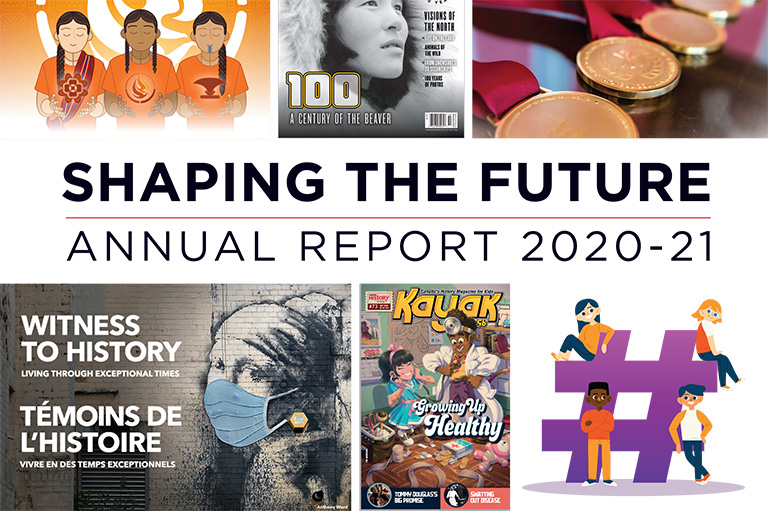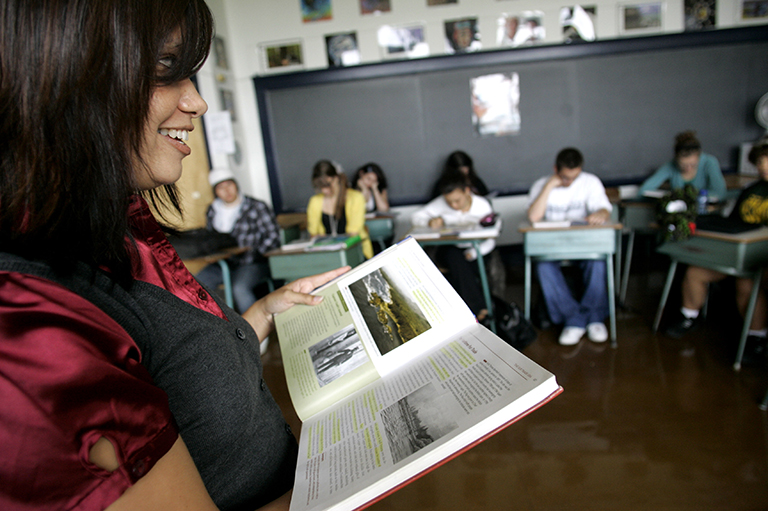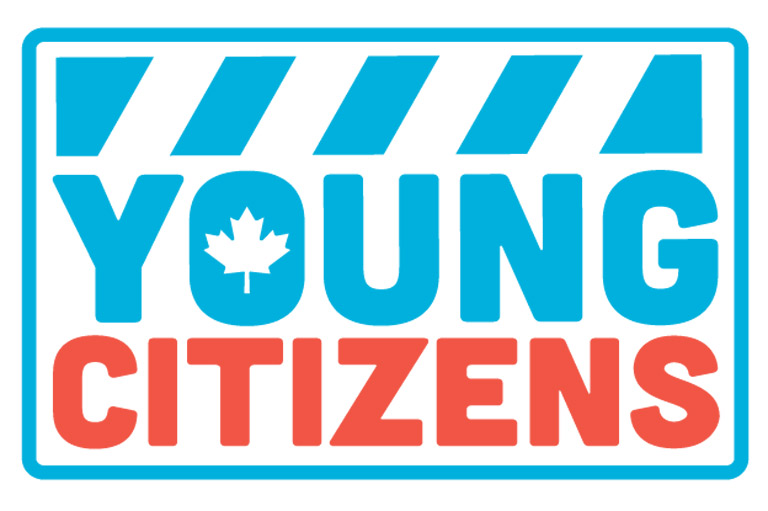Infectious Stories
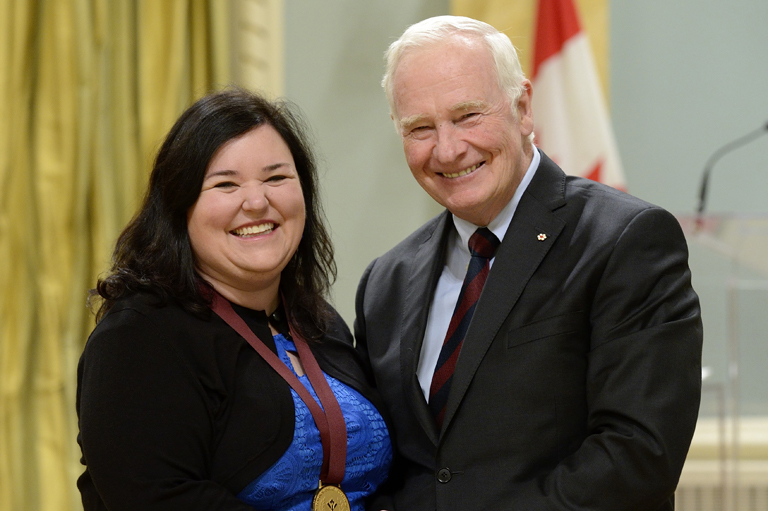
What do you want future generations to know about how you adapted to and lived through the COVID-19 pandemic?
That was the question Kathryn Whitfield, a teacher at Bloor Collegiate Institute in Toronto, asked her grade ten French class in the spring of 2021 as she tasked them with chronicling the unique experiences of young people during the pandemic. Whitfield asked her students to draw upon their own lives and to supplement their work with illustrations and images.
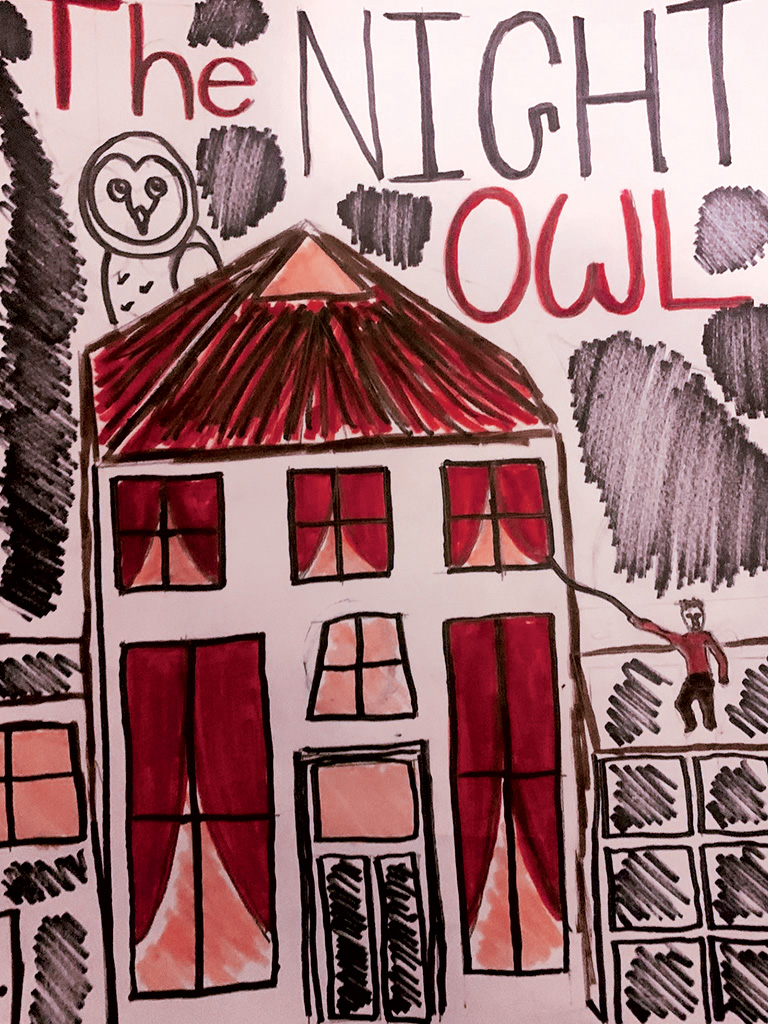
A recipient of the 2015 Governor General’s History Award for Excellence in Teaching and a proponent of story-based projects, Whitfield knew there was tremendous value in asking her students to take a storytelling approach to this particular topic.
Inspiration first hit Whitfield at the start of the COVID-19 pandemic, when she learned of a fellow Governor General’s History Award-winning teacher’s venture.
In 2020, Armand Doucet, a New Brunswick teacher and a recipient of the Governor General’s History Award for Excellence in Teaching in 2017, together with Elisa Guerra, an award-winning Mexican educator, wrote and published a free children’s book titled Hope, Where Are You? The book tells the story of six children around the world who experience school closures due to COVID-19.
Whitfield immediately recognized an opportunity to enrich her story project by following Doucet and Guerra’s approach. While Hope, Where Are You? focused on international perspectives, Whitfield’s project aimed to share the perspectives and experiences of inner-city teenagers in Toronto.
Whitfield’s students analyzed the progression of narratives and assessed how the characters in Hope, Where Are You? adapted to the changing world. They used a story-mapping model to develop their own tales and to craft their characters’ responses to the pandemic.
Their efforts resulted in À la recherche de l’espoir, a two-hundred-page digital anthology that poignantly reveals the youth experience, with depth, openness and honesty.

By writing down their own experiences in the form of stories, the students came to understand that personal details make history approachable. Their stories are windows into their experiences, stirring emotion and fostering empathy in both their contemporaries and future readers.
Whitfield’s project highlights the importance of empowering students. “Great teachers give students their own agency in the classroom,” she said.
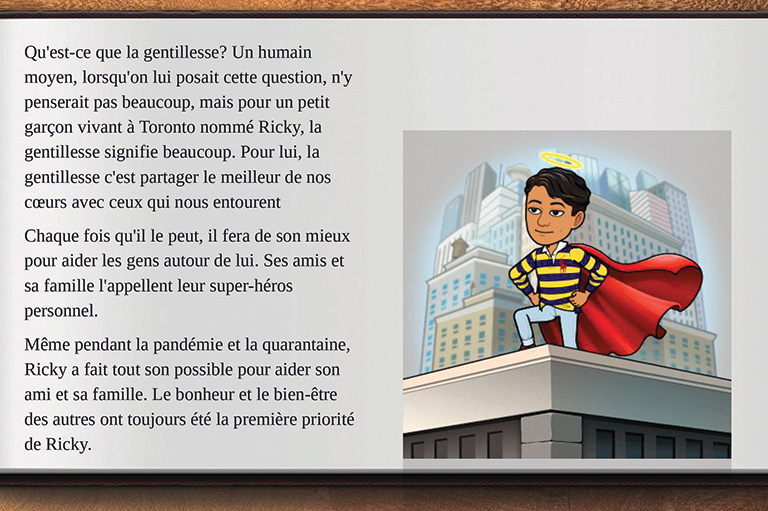
Themes associated with this article
Advertisement
You might also like...
Save as much as 40% off the cover price! 4 issues per year as low as $29.95. Available in print and digital. Tariff-exempt!


